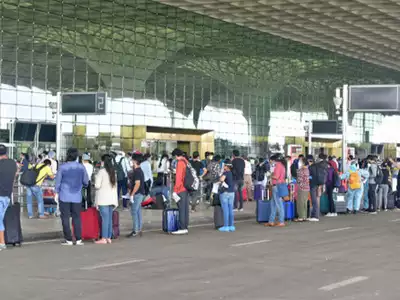If you are a tourist or business traveler and require an Indian visa for travel to India, it is important that you apply as soon as possible. Although the Indian visa application process can be time-consuming, if you follow these simple steps, you will be well on your way to obtaining the visa you need in a timely manner.
Title: 5 Tips for Writing Successfully with Plain English
Description: Plain English writing isn’t about avoiding jargon or being simplistic; it’s about making your writing easy for your readers to understand. In this post, we’ll give you five tips for writing in plain English that will help make your content more accessible and engaging. 30 DAYS INDIAN VISA
What is an Indian Visa?
There is no one-size-fits-all answer to this question, as the requirements for a visa will vary depending on your nationality and the country you are travelling to.
Generally speaking, an Indian visa is a document issued by a foreign embassy or consulate that authorizes a foreigner to enter and remain in a particular country for a specific period of time. A visa can be temporary (for example, for tourist purposes) or permanent (for example, if you are planning to live permanently in the country).
To obtain an Indian visa, you will need to submit certain documents to the relevant embassy or consulate. These documents may include:
-Your passport;
-A copy of your passport photo page;
-Proof of your citizenship (usually your birth certificate);
-A letter from your employer stating that you will be working in India for a specific period of time;
-If applying for a tourist visa, documentation proving that you have funds available to cover your costs while in India (i.e. bank statement, travel insurance policy, confirmation email from your airline). URGENT EMERGENCY INDIAN VISA
How to Apply for an Indian Visa?
There are a few things you need to do before applying for an Indian visa. The first is to determine if you require a visa at all. If you are travelling for tourism, business, or medical reasons, then you most likely don’t require one. However, if you are travelling for other reasons (eg work or study), then you will need to apply for a visa.
To apply for a visa, you will need to visit the Indian embassy or consulate in your country of residence. You will be required to fill out an application form and provide some documents relating to your trip. You should also ensure that you have the correct travel documents: a passport valid for at least six months after your return from India, proof of onward travel (if necessary), and a letter of invitation from someone in India.
If your trip is urgent, then you can apply for an emergency Indian visa. This is only available if there is an emergency situation that necessitates your immediate departure from India. You will need to provide additional documentation and pay a higher fee than usual.
What are the Requirements for an Indian Visa?
The requirements for an Indian visa vary based on the passport holder’s nationality and type of visa. Nationals of some countries, such as United States, Canada, Australia, New Zealand, and the European Union (EU) don’t need a visa to enter India. However, other nationalities may require a visa if they are not citizens of one of the exempt countries. Check with your nearest Indian embassy or consulate for specific information about visa requirements for your country of origin.
If you are traveling to India for business purposes only and have a valid business invitation from an Indian company or organization, you can apply for a B-1/B-2 visitor’s visa. You will need to provide evidence that you have been invited to visit India by a reputable Indian company or organization and that your visit will have no negative impact on Indian economic interests. If you’re visiting India as part of a cultural tour organized by an Indian travel agency or hotel chain, you won’t need a visa if all participants in the tour are Indians and the tour is not focused on religious activities or political events.
If you’re traveling to India as part of a group that includes non-Indian nationals, you’ll need to apply for a tourist visa at an embassy or consulate before departing for India. The tourist visa allows visitors up to 90 days in duration and allows them to stay in any city in India except the capital city, Delhi. The tourist visa also permits visitors to visit only one place in each state or
What are the Cons of a 30 DAYS INDIAN VISA?
A 30 DAYS INDIAN VISA is a good option if you’re only planning to stay in India for a limited amount of time. However, there are some cons to consider before applying. First, the visa only allows you to stay in India for 30 days. If you need to stay longer, you’ll need to apply for an urgent emergency Indian visa. Second, the visa is only valid for entry into India. If you plan on travelling outside of India, you’ll need to obtain a separate travel visa. Finally, the visa is not refundable or extendable.
Conclusion
There are a few steps that you can take to get your Indian visa as quickly as possible. First, make sure that you have all of the required documents ready. Second, check the embassy’s website to see if there is an emergency application process for certain situations. Finally, decide which type of Indian visa you need and start the application process. We at VisaHQ understand how important it is to get your visa as soon as possible, so we will do everything in our power to help you get approved. Thank you for reading!
